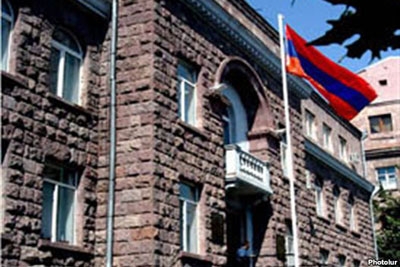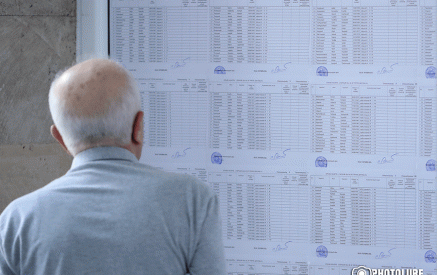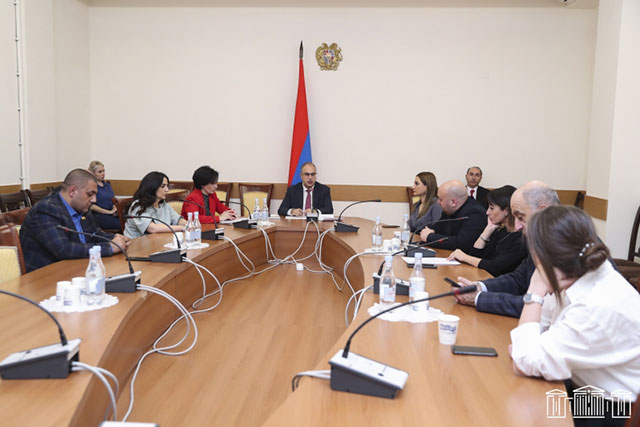The negotiations, launched in 4+4+4 conventional format in March 2016 to amend the Electoral Code of Armenia, which could offer an opportunity for manifestation of democracy and provide an adequate basis for building public trust in the electoral processes, failed. Government-opposition-civil society consensus fell short by the government as a result of its absence of political will to improve the electoral system, breaking the rules of honest dialogue, and its uncompromising position in certain issues. Yet, in June 2016 the representatives of the governing and non-governing political parties came to an agreement in introducing organizational and technical mechanisms for oversight over the lawfulness of the electoral process, based on which subsequent amendments were made by the National Assembly of Armenia to the Electoral Code adopted only a month before, and international organizations were requested to provide financial support for carrying out the proposed mechanisms. Despite the willingness expressed by the latter to help improve electoral processes, this opportunity failed either at least because of the government’s lack of making sufficient efforts. This fact was stipulated by the Central Electoral Commission’s (CEC) statement issued at its special session on August 29, 2016, which was based on the government’s response on the impossibility of providing technical measures.
Various members of civil society have recurrently expressed concerns, stating that the new Electoral Code of the Republic of Armenia is a significant setback compared with the Electoral Code adopted in 2011, vis-à-vis free formation and expression of people’s will; ensuring and effective protection of equal electoral right; transparency and public oversight of the electoral process; as well as effectiveness of the measures taken for eliminating the possibility of voting on someone’s behalf. Such regulations that imply misuse of administrative resources and district lists ensuring criminal-oligarchic authorities’ impact, restrictions on the formation of political coalitions, restrictions on the rights of observation missions and mass media and creation of additional obstacles to carry out their activities are of serious concern for civil society organizations.
The abovementioned verifies that the authorities of Armenia are not determined to take real actions for creating minimum safeguards in restoring public trust in the electoral processes and ensuring effective protection of electoral right.
As for the negotiations held between the government and Armenian National Congress political party on publication of signed voter lists, we need to mention that the mechanism itself cannot serve as an effective measure in protecting electoral right unless it meets some basic standards. Publication of the signed voter lists can be considered acceptable if at least the following requirements are met.
Read also
The voter lists should be comprehensive, for which the former legislative regulations need to be restored, including the requirement to fill in all the fields in the lists in the manner prescribed by law (number of identification document, registration address, voter’s signature, individual seal of the committee member, other notes).
After counting the number of voters who participated in voting in the electoral precinct, the signed voter lists should be available to the political parties running in the election and the organizations observing elections, as well as should be scanned and posted on CEC website, considered as an official document with an access to search, download and print.
The signed voter lists should be available during a reasonable period to ensure filing effective complaints based on them.
The burden of proof for applications regarding voting on someone’s behalf should be placed on the state, which should apply all the means at its exceptional disposal, such as electronic border management information system (BMIS) database used by Border Guards Troops under the National Security Service of Armenia adjunct to Government to check if Armenia’s outer border was crossed. The government should provide safeguards that the mentioned system and/or other applied means are fully sufficient for effectively checking the voting on someone’s behalf, and in case of impossibility of such checking, it should bear the responsibility for the negative consequences.
Attaching importance to publishing the signed voter lists from the point of view of its effectiveness as a necessary mechanism to prevent voting on someone’s behalf, we record that due to numerous problems of the Electoral Code and the authorities’ stubborn resistance to solve those problems, the conduct of free and fair elections in Armenia and the formation of government through expression of people’s free will has been made almost practically impossible.
In order to inspire hope in restoring public trust in elections it is necessary that restrictions on public oversight be immediately lifted, the observers and mass media representatives’ rights be restored at least to the level of the regulations stipulated in the former Electoral Code, a procedure be defined allowing observers’ findings be officially registered, and election observation organizations be empowered to file complains on the violations of objective electoral right. In particular, all the stakeholders, including the voters and the organizations that carry out observation missions should have an opportunity and more complete safeguards to complain the results of voting.
In order to prevent the violations of electoral legislation and to ensure that the purpose of punishment is effective, the authorities, within the framework of state-pursued policy for recovering the electoral system, should refuse from their practice of releasing from punishment through amnesty those offenders who were convinced of violation of electoral system and electoral right. Further, stricter punitive measures should be stipulated in the articles of Criminal Code for having committed electoral offenses, in particular, the punishments implying fines should be abolished, and the terms of imprisonment should be extended, as well as the offender should be restricted from holding any office for state or local government, as well becoming a member of election commission, proxy or observer (e.g. for 3-5 years). Moreover, those articles should be restored that, due to May 25, 2016 amendments, currently imply mitigated responsibility or are ineffective.
All the technical and other safeguards for administering electoral processes and ensuring legitimacy should be under public surveillance, and the state should guarantee their sufficient transparency.
An information center/database, including the data on the citizens who are out of the republic should be created to check the presence of citizens in Armenia in order to use effective measures against electoral fraud, according to the database provided by electronic BMIS, and amendments made as a result of examination of administrative complaints. All interested stakeholders should have access to the database.
The selection of (both district and precinct) election commissions, and members of other bodies formed within the framework of electoral process should be made in public and transparent procedures in order to have equal opportunities for acquiring qualification and participating in competitions.
“Open Society Foundations – Armenia” Foundation
“Yerevan Press Club” NGO
“Foundation Against the Violation of Law” NGO
“Transparency International Anticorruption Center” NGO
“Union of Informed Citizens” NGO
“Europe in Law Association” NGO
“Committee to Protect Freedom of Expression” NGO
“Khoran Ard” Intellectual Centre NGO
“Collaboration for Democracy” NGO
“Helsinki Citizens’ Assembly Vanadzor office” NGO
“Peace Dialogue” NGO
“Children Society” Youth Initiatives Support Center NGO
“Union of Lorians” NGO
“Rule of Right” NGO
9 September, 2016
























































